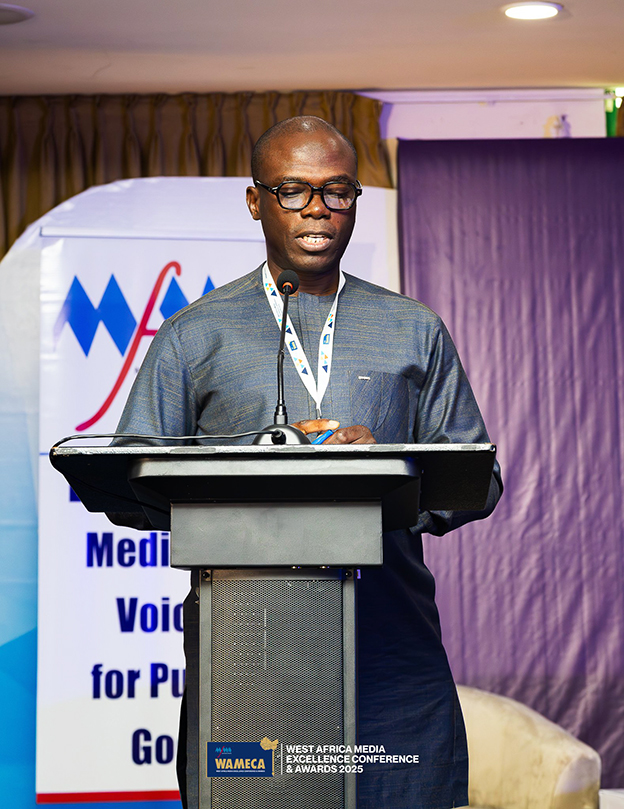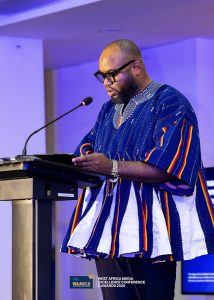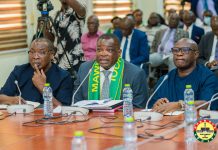
The Deputy Minister for Communications, Digital Technology, and Innovation, Mohammed Adams Sukparu, has emphasized that journalism must play a central role in transforming Africa’s digital innovation into real power for its people, by helping citizens understand, question, and engage with new technologies.
He made these remarks at the opening of the 8th West Africa Media Excellence Conference and Awards (WAMECA), held in Accra under the theme “Journalism and Digital Public Infrastructure in Africa.”Journalists from across the sub-region have converged in Accra to explore how journalism can shape the continent’s digital future.

Describing the theme as “bold and relevant,” Mr. Sukparu said it challenges African societies to reflect not only on the tools driving digital economies, but also on how those tools can reinforce democracy, strengthen transparency, and promote inclusion.
“Technology can be a force for good,” he said, quoting UN Secretary-General AntónioGuterres, but said “only if it serves people, protects their rights, and helps break the vices rather than deepen them.”
The Deputy Minister noted that across the continent, countries are building Digital Public Infrastructure (DPI) from national ID systems and mobile money platforms to online government services, which are transforming public service delivery and making life simpler, more efficient, and more connected for millions of Africans.
Highlighting Ghana’s own progress in this space, he cited the Ghana Card, Mobile Money Interoperability, and the Ghana.gov platform as key examples of how DPI is improving service delivery and promoting financial inclusion.
However, he warned that without public understanding, transparency, and trust, these digital systems could fall short of their democratic potential.
“When journalists help citizens understand and question new technology,” he asserted, “they transform innovation into power, the kind of power that serves the people, not just institutions.”
Media as Architects of Trust in Africa’s Digital Future
Earlier, Mr. Sulemana Braimah, Executive Director of the Media Foundation for West Africa (MFWA), stressed in his welcome address that DPI must be seen not just as a technological milestone, but as a societal project, one that journalism must help shape and protect.
“We are not just witnessing a digital revolution in Africa — we are actively building and reshaping it,” Braimah said and added, “Digital IDs, digital payments and data exchange systems are becoming the foundation of modern African economies.
“But no matter how advanced, these technologies are meaningless without trust, transparency, and inclusion.”
He cautioned that without strong, informed journalism, Africa risks creating digital systems that are efficient but not fair, powerful but not accountable and innovative but not inclusive.
Mr. Sulemana Braimah emphasised the vital role of journalism in asking the right questions about inclusion, data protection and financial equity, ensuring that digital public infrastructure works for all, especially the marginalised.
To further this mission, Mr. Sulemana Braimah announced the launch of the DPI Journalism Fellowship, an MFWA-led initiative supported by partners, aimed at equipping journalists to report deeply on DPI.
So far, fellows in the program have produced over 376 impactful stories across West Africa that spotlight both progress and pitfalls in DPI development.
“This work is not just timely; it is necessary, it ensures that DPI doesn’t just serve governments or corporations, but truly serves the people,” he said.
As WAMECA 2025 continues, participants from the media, technology, policy, and civil society sectors will continue exploring how journalism can serve as both a watchdog and guide in Africa’s digital transformation, ensuring that DPI is not merely a tool of efficiency, but a true driver of equity, dignity and empowerment for all.
For more news, join The Chronicle Newspaper channel on WhatsApp: https://whatsapp.com/channel/0029VbBSs55E50UqNPvSOm2z








